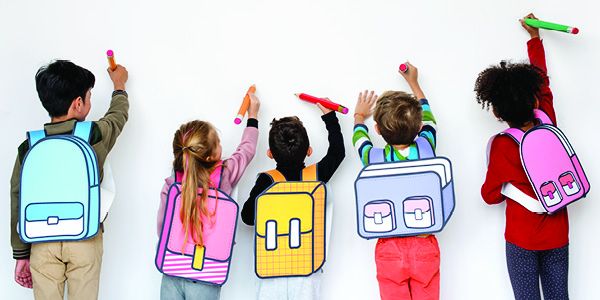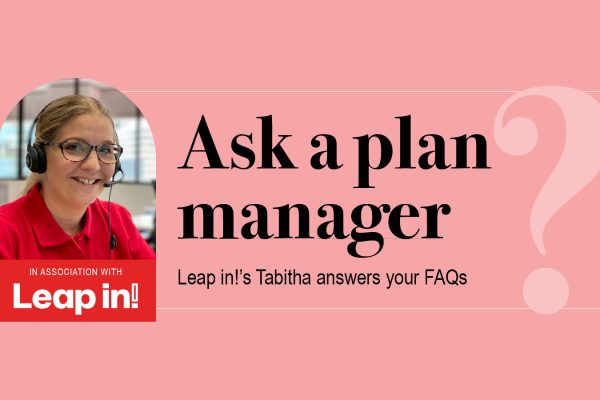
Top tips for starting school
By Tamar Kaplan
Transitioning from pre-school to ‘big’ school is an important milestone for any child, as well as for the whole family.
Starting school is a time of excitement and enjoyment, but for some it can be a time of uncertainty and anxiety. When faced with this transition each child and parent may react differently and while there is often no way of knowing how your child will react, there are many simple things you can do to prepare yourself and them!
Here are a few strategies that you can use:
Help them become familiar with their school environment
To help your child prepare for ‘big school’, visit the school for a tour before their first day to make sure they are familiar with the environment. As you walk around the school, make sure they feel comfortable finding the classrooms, toilets, bubblers, school office, the bus stop, entry and exit gates and any other important parts of their new school. You can also use this time to explain school routines such as the school bells, lining up for class, assembly etc. If they have any concerns or doubts, speak to the school about additional visits.
In the holidays before school starts, go for walks past the school, or drive by, so your child can become familiar with the environment and the journey in.
Develop your child’s independence before they start school
To help develop their independence you can practice school-related tasks at home.
Your child won’t have as much help at mealtimes when they start school, so make sure to pack your child’s lunchbox with foods they can peel or unwrap independently. Allow your child to practice opening their lunch box, peeling fruits and opening food wrappers. If there are any items your child struggles with, send these items unwrapped or pre-cut until they develop more independence with these skills.
When packing their lunchbox, talk to them about which foods to eat for recess and which foods to save for lunch. Talk about accidents that might happen, like what to do if their lunch falls in the dirt or their drink tips over.
While it might be tempting to wait until their first day of school to try on school uniforms, it can be helpful to have your child dress themselves to make sure they feel comfortable and that they know how to do up any zippers, buttons and straps on their own.
Buy school shoes as early as possible so your child can start practicing putting them on and gain confidence before school starts. Velcro shoes can be useful as many kindergarten age children don’t yet have the skills to tie laces, this can be particularly challenging for children who have dexterity issues.
Talk to them about how they should look after their own belongings and try to help them recognise their own name tag on their clothes, lunch box, drink bottle and anything else they take to school.
Create excitement about starting school and learning
The first few years of a child’s school life can determine their attitude to learning and can influence a child’s self-esteem and success. Talking about the fun things they will learn and showing excitement toward school can help to instil a love of learning within your child.
You can also encourage your child’s enthusiasm for learning by incorporating learning into your day-to-day activities before they even start school. For example, taking your child with you for your weekly grocery shop can help to build skills such as counting, vocabulary, colour recognition and social skills.
Establish a new routine early
Routines enable children to understand expectations, provide reassurance and predictability, and foster independence through repetition. Routines can take weeks to settle into, so consider starting a school morning routine at least two weeks before school starts.
Start your new morning routine by waking up, having breakfast and brushing teeth at the same time each morning. This will also help you to get an idea of how long it will take them to get ready for school each morning.
You can also use this to start showing your child how to pack their bag. Make a checklist of all the things they will need to take to school each day and make a habit of going through the list each morning. As you go through the list, check that they know how to open and use items like their pencil case, their lunch box and their drink bottle, so they can feel confident when you’re not there to help.
Sometimes a to-do list or visual image cards can help a child remember the routine better. Consider printing off a visual list and putting it on the fridge or on the back of their bedroom door, ticking each item off as you do them every morning. An extra trick is to laminate or put the checklist in a plastic sleeve, so they can check it off each day with a whiteboard marker.
Help your child learn to manage their emotions
The first few weeks of school are going to be exciting but tiring. When children get tired, they can start to behave in negative ways such as mood swings or disruptive behaviours. If you notice any changes in your child’s behaviour, acknowledge how they’re feeling and offer them more positive ways of managing their emotions, like taking deep breaths or talking about it.
Communicate expectations and needs with your child and their school
In the weeks leading up to the start of school, talk regularly about what they’re going to be doing. Encourage them to ask questions and answer them honestly.
If your child has any additional needs or medical conditions, talk to them about what to do and where to go for help if they need it. Talk with your child’s school ahead of time to make sure that the relevant teachers understand the strengths and difficulties that make your child unique. The more your child’s school and teachers know about them, the better they can teach and support them.
Keep open communication with your child’s teachers throughout the year. Often this can help to reduce emotions and provide solutions quickly. Discuss the best method of communication with your child’s teachers.
Let your child play
Starting primary school means more independence and responsibility for your child, but this doesn’t mean they need to stop playing and having fun! Playing enhances a wide range of skills that are essential for school. Not only does it provide an opportunity to interact with other children and practice social skills and effective communication, but it also allows them to practice gross and fine motor skills through games and movement.
If your child is going to school with preschool friends or meets someone new at orientation, try and schedule in some play dates in the weeks leading up to school so they have some familiar faces to look for on the first day.
And remember, it’s OKAY to cry when starting school!
No matter how much you do to prepare your child for starting school, there may be a range of emotions when they walk through the gate or wave goodbye for the first time.
Don’t worry – tears are part of the journey (both from them and you!) and you’re certainly not alone!
ABOUT LEARNING LINKS
Learning Links is a not-for-profit charitable organisation dedicated to helping children learn. For over 50 years Learning Links professionals have provided educational, language and wellbeing support to children with learning difficulties and disabilities. Learning Links is a registered NDIS provider in the area of improved daily living.
Our experts provide evidence-based supports and programs in our centres across Sydney, online and in schools. We provide a range of supports including diagnostic assessments, psychological therapy, speech therapy, social skills group programs, preschool, early intervention playgroups, parent and professional learning learninglinks.org.au | 1800 003 900 | [email protected]






